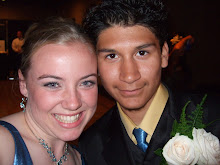Images found in Shakespeare’s That time of year thou mayst in me behold
1. Leaves in the fall, yellow or fallen off
2. Bare trees shaking in the cold
3. Empty choirs as opposed to beautiful singing birds
4. Twilight fading into a Sunset
5. Blackness as something that steals light
6. Glowing fire turning youth to ashes
Shakespeare’s poem consists of a lot of images of light versus darkness as can be seen in his comparison of spring and fall, twilight and sunset, night and day, and fire and ashes. Th
When the poem is broken up into the stanzas of a Shakespearean sonnet it is seen that Shakespeare places one comparison of light and dark in each stanza. Shakespeare begins his poem discussing fall and discussing how it had once been spring. Shakespeare notes that there may still be some leaves on the trees which shows that there is still some life left, it is not yet winter. In the next stanza twilight gives way to sunset and then darkness and sle
In his final lines Shakespeare writes that others see this changing from light to dark and how time grows shorter and they cherish their lives and the lives of those around them more because they know that they will soon be gone.

No comments:
Post a Comment